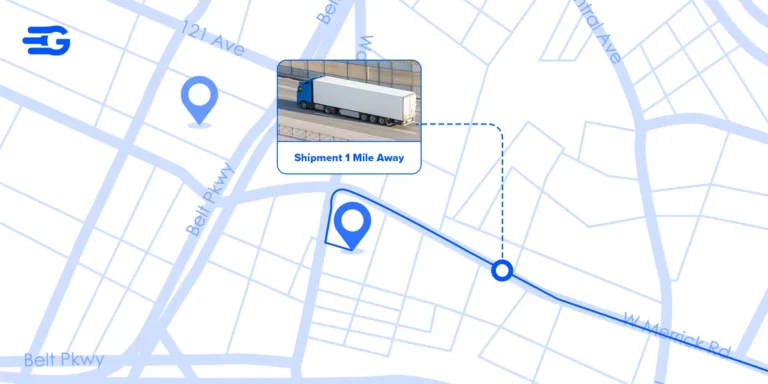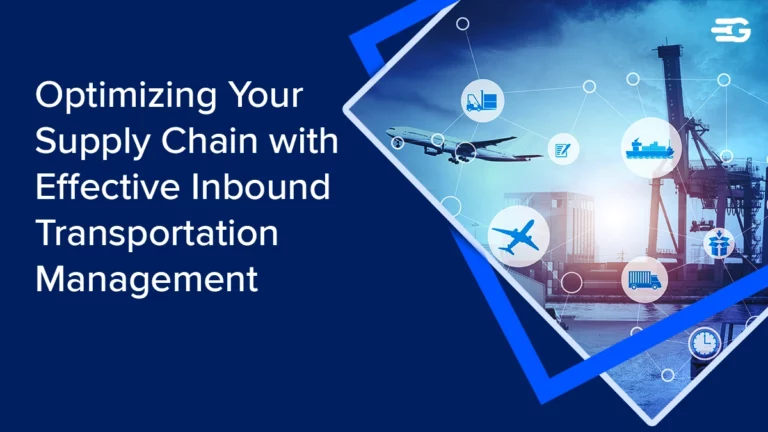Understanding Economy Shipping in Logistics
Cost-cutting has been a priority of the world lately. Beyond terms such as “economic approach” or “striving of resource optimization”, the gist predominantly remains the same i.e. better costs.
Finding cost-effective ways to handle shipping is crucial for companies of all sizes. That’s where economy shipping comes in. It’s become increasingly important because it’s affordable and flexible, making it a top choice for businesses looking to save money while still delivering goods to customers.
Shipping can eat up a big chunk of a company’s budget, so finding ways to cut those costs without sacrificing quality is key. Economy shipping lets businesses transport their goods at a much lower price compared to faster, more expensive shipping options. This helps them keep prices competitive while still making sure customers get their orders on time.
Alongside economy shipping offers immense flexibility. With different delivery times and service levels, companies can offer shipping choices that match what their customers want. Some customers might be fine with waiting a bit longer for delivery if it means saving money, while others might need their orders to arrive quickly. Economy shipping lets businesses meet all these different needs.
In this context, understanding the role of economy shipping is imperative for any business looking to stay ahead of the game. Right from the aspects of freight quotation to the holistic execution of operations, the entire process is today streamlined at the best costs by modern software solutions.
The Advantages of Opting for Economy Shipping Solutions
In a positive sense economy, shipping has emerged as an inadvertent miser in the world of logistics, offering effective cost-saving solutions. However, this aspect can be considered as the tip of the iceberg. Digging further into the scope of “economy” of economy shipping are:
Certainly, here’s a revised piece with a unique approach, presented in a structured list format:
1. Enhanced Customer Satisfaction: Economy shipping’s relative affordability and broad scope for flexibility cater to the needs of budget-conscious shoppers.
2. Environmental Friendliness: Technically, Economy shipping is less antagonistic to the environment in the context of shipping as it involves ground shipping and bulk transportation, which, although slower, leave a smaller carbon footprint.
3. Cost Efficiency: As a barter to slightly longer delivery time, companies can save substantially on shipping costs, which can be passed on to customers or contribute to higher profitability.
Besides, the cost savings, economy shipping is perfect for small businesses and folks who ship often. Its reasonable speed strikes the perfect balance between saving money and getting things done on time.
Economy vs Express: Analyzing the Cost-Benefit Ratio
Economy shipping offers a cost-effective option for businesses and customers, prioritizing affordability over speed. Typically taking 2-5 business days domestically and up to 18 days internationally, it’s ideal for non-urgent shipments and bulk items. While it saves money, it may not suit perishable goods or time-sensitive needs and may have limited package tracking.
Express shipping, on the other hand, guarantees speedy delivery within 24-72 hours, catering to urgent shipments with various options like same-day or overnight delivery. However, the prominent aspect of this method of shipping is higher costs that may not suit the budgets and balances of small and medium enterprises.
However, having said that economy shipping is effective, it seems to suit the mastermind who foresees the future and has an intricate plan jotted out.
It may not be true, for small businesses operate at a different scale and have a relatively immediate need for the movement of goods.
While companies like FedEx and UPS have hiked the shipping costs at an overall average of 5%, the impact of it on small businesses is anticipated to be drastic. In such a context, economy shipping enables small businesses to offer budget-friendly shipping choices to customers, enhancing customer satisfaction and loyalty despite the challenges of rising shipping prices.
Eco-friendly Benefits: Is Economy Shipping Greener?
When we think about shipping, we often focus on cost and speed, but there’s another important factor to consider: the environment. Believe it or not, economy shipping can be greener than its express counterpart. How, you ask? Let’s break it down.
One of the key eco-friendly benefits of economy shipping is its ability to reduce carbon emissions. How does it do this? Well, economy shipping often involves consolidating multiple packages into one shipment. This means fewer trips for delivery trucks, which in turn means less fuel consumed and fewer emissions released into the atmosphere.
Besides, in terms of packaging. economy shipping encourages companies to use minimal and recyclable packaging materials, further reducing waste and environmental impact. By choosing economy shipping, customers can often opt for slower delivery times, allowing for more efficient route planning and further reducing emissions.
So, is economy shipping greener? The evidence certainly seems to suggest so.
But, this aspect of shipping greener is largely abstract. Without substantial numbers and data to corroborate, “green” as an attribute is just a shallow word, that acts as an important keyword to push visibility. However, the wonder of technology has rendered us capable of specifics such as if greener, how much greener? New AI-enabled technologies have been pristine in attesting a numerical value to the eco-friendliness and sustainability of supply chain operations.
Essential Strategies for Integrating Economy Shipping into Your Supply Chain
Integrating economy shipping into your supply chain can be a game-changer for your logistics operation. Here are some actionable strategies to help you do it effectively:
1. Evaluate Your Shipping Needs: Start by assessing your shipping needs and identifying areas where economy shipping can be beneficial. Consider factors such as delivery speed requirements, shipment volumes, and budget constraints. By understanding your specific requirements, you can tailor your economy shipping strategy to fit your business needs.
2. Diversify Your Carrier Options: Explore different carriers and service levels to find the best combination of price, reliability, and coverage for your shipments. This diversification can help mitigate risks and ensure consistent service, especially during peak shipping seasons or in regions where certain carriers may have limitations.
3. Optimize Packaging and Consolidation: Maximize the efficiency of your shipments by optimizing packaging and consolidating orders where possible. Streamlining packaging reduces waste and dimensional weight charges while consolidating shipments allows you to take advantage of volume discounts offered by carriers. Implementing these practices can result in significant cost savings and environmental benefits.
4. Utilize Technology: Leverage technology solutions such as shipping software and transportation management systems (TMS) to streamline your economy shipping processes. These tools can automate order processing, rate comparison, and shipment tracking, saving time and reducing errors. Additionally, TMS platforms often provide insights into shipping trends and performance metrics, enabling you to make data-driven decisions to optimize your supply chain.
5. Educate and Communicate: Ensure that your team is well-informed about the benefits and procedures associated with economy shipping. Provide training on best practices for packaging, labeling, and scheduling shipments to maximize efficiency and minimize delays.
Aligning Economy Shipping with Business Goals
Aligning economic shipping methods with the strategic goals of a business is essential for maximizing benefits. One key aspect is understanding the overarching objectives of the company, whether it’s cost reduction, customer satisfaction, or environmental sustainability. By aligning economy shipping with these goals, businesses can achieve greater success.
Aligning economy shipping with customer satisfaction goals involves prioritizing reliability and timely delivery. Businesses can achieve this by selecting reputable carriers with a track record of on-time deliveries, providing real-time tracking information to customers, and optimizing delivery routes to minimize transit times.
Furthermore, for businesses committed to environmental sustainability, aligning economy shipping methods with this goal involves minimizing carbon emissions and reducing environmental impact. This can be achieved by selecting carriers eco-friendly practices, optimizing transportation routes to reduce fuel consumption, and using sustainable packaging materials. Moreover, the advent of computing solutions in the form of freight procurement software makes the entire alignment process less cumbersome.
Leveraging Technology for Efficient Economy Shipping
As technology blends with businesses as an inseparable ancillary, it enables some of the important operational tools that can levitate the efficiency of economy shipping.
For instance, a shipping visibility platform provides real-time insights into the supply chain, enabling businesses to optimize operations and reduce costs.
- By tracking shipment locations and transit times, businesses can optimize routes to minimize fuel consumption and transportation expenses. Furthermore, it enhances the customer experience, reducing inquiries and associated customer service costs.
- Accurate inventory management prevents overstocking or stockouts, reducing storage costs and the need for expedited shipping. Early detection of delays allows for proactive problem-solving, minimizing costly disruptions and customer dissatisfaction.
- Detailed visibility enables efficient resource allocation, optimizing manpower and transportation resources. Data analytics tools analyze shipping performance, identifying trends and areas for improvement to enhance efficiency and reduce costs over time.
Understanding International Economy Shipping Regulations
Navigating international economy shipping regulations is crucial for businesses engaged in global trade. In the spectrum of supply chain visibility, understanding these regulations helps ensure compliance, avoid delays, and mitigate risks associated with cross-border shipping.
- When shipping internationally using economy services, businesses must accurately complete customs forms, including invoices, declarations, and certificates of origin. Failure to provide correct and comprehensive documentation can lead to customs delays or even refusal of entry into the destination country.
- Each product shipped internationally is subject to specific tariff classifications and duty rates determined by the destination country’s customs authorities. Businesses need to research and understand these classifications and rates to accurately calculate and budget for potential duties and taxes.
- Businesses must comply with export control regulations imposed by both the originating and destination countries. Certain goods, such as military equipment or controlled substances, may be subject to export restrictions or require special permits or licenses for shipment. Failure to adhere to these regulations can result in severe penalties, including fines or legal consequences.
Choosing the Right Partners for Economy Shipping
Selecting the right logistics partners and carriers is paramount for effective economy shipping. These partners play a crucial role in ensuring smooth operations, timely deliveries, and cost-effective solutions.
First and foremost, choosing reputable logistics partners and carriers instills confidence in your shipping process. Working with established and trusted companies minimizes the risk of delays, damaged goods, or other logistical hiccups that can arise with less reliable providers.
Also, the right partners offer access to a wide network of transportation options and services. This flexibility is essential for tailoring shipping solutions to your specific needs, whether it’s consolidating shipments, choosing the most cost-effective routes, or accommodating special requirements.
These carriers often offer competitive rates, dedicated customer support, and specialized expertise in handling economy shipments. They understand the unique challenges and considerations involved in economy shipping and can provide tailored solutions to optimize efficiency and cost-effectiveness.
There are a plethora of options available to adhere to economy shipping, but it is important to discover the right fit for the specific needs of your business.
Criteria for Selecting Economy Shipping Carriers
When selecting carriers for economy shipping, businesses should consider several important criteria to ensure smooth and cost-effective transportation of their goods.
1. Reliability: Choose carriers with a proven track record of reliability in delivering shipments on time and without damage. Reliability is crucial for maintaining customer satisfaction and avoiding disruptions in supply chain operations.
2. Cost-Effectiveness: Compare the rates and pricing structures of different carriers to find the most cost-effective option for your shipping needs. Consider factors such as base rates, surcharges, and discounts to maximize cost savings while maintaining service quality.
3. Coverage and Reach: Assess the coverage and reach of each carrier’s network to ensure they can effectively serve your shipping destinations. Look for carriers with extensive geographic coverage and reliable transit times to reach your customers worldwide.
4. Technology and Tracking: Opt for carriers that offer advanced technology and tracking capabilities to provide visibility into your shipments’ status and location. Real-time tracking allows you to monitor shipments’ progress and proactively address any issues that may arise.
5. Customer Service: Consider the level of customer service and support provided by each carrier. Responsive and helpful customer service representatives can assist with inquiries, resolve issues quickly, and provide assistance throughout the shipping process.
Building Relationships with Freight Forwarders
Building strategic partnerships with freight forwarders can significantly enhance economy shipping terms for businesses. Strong relationships with freight forwarders take companies a long way as they gain access to a wealth of benefits that can optimize their shipping processes and reduce costs.
However, it largely also depends on the service providers that coordinate between the business and freight forwarders. Technology-driven solutions in this context reduce several types of discrepancies and communication gaps.
To find highly automatized freight forwarding options, visit https://forwarders.gocomet.com/
Establishing trust and rapport with freight forwarders allows businesses to negotiate better terms and rates for economy shipping services. Freight forwarders value long-term partnerships and are more inclined to offer competitive pricing and flexible arrangements to loyal clients.
Strategic partnerships enable businesses to access a wider network of transportation options and routes. Freight forwarders often have established relationships with multiple carriers and logistics providers, allowing them to offer diverse shipping solutions tailored to each client’s needs. This access to a broader network can result in more efficient shipping routes and reduced transit times, ultimately leading to cost savings for businesses.
Thus, building relationships with freight forwarders facilitates smoother communication and collaboration throughout the shipping process. Close partnerships enable businesses to receive personalized assistance, proactive updates on shipment status, and timely resolution of any issues or challenges that may arise.




